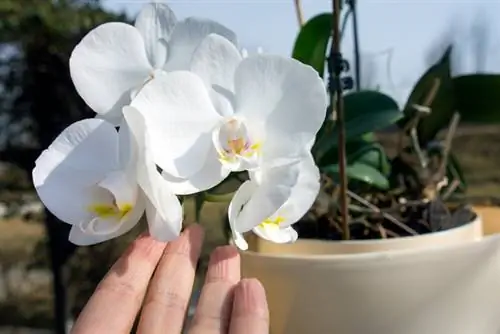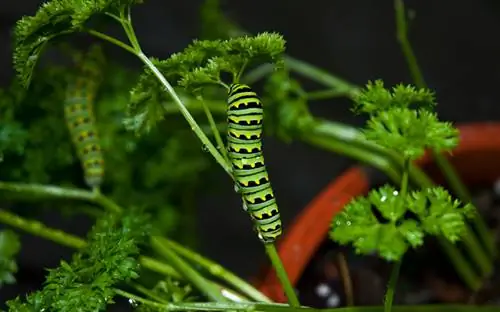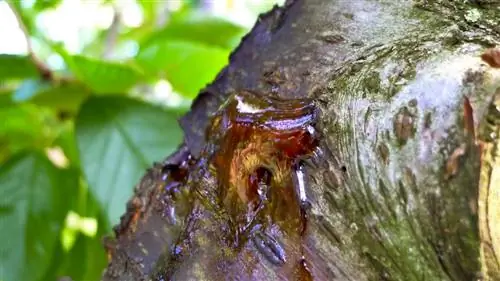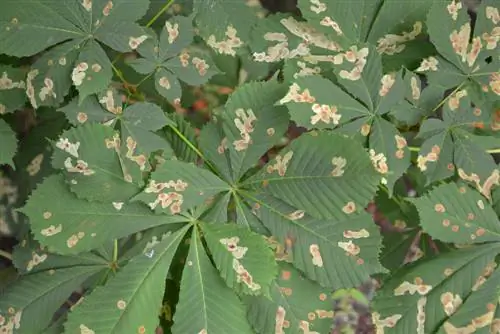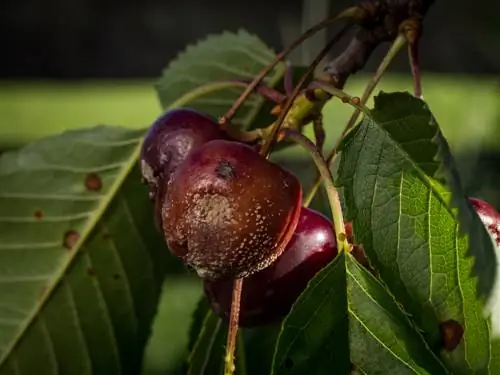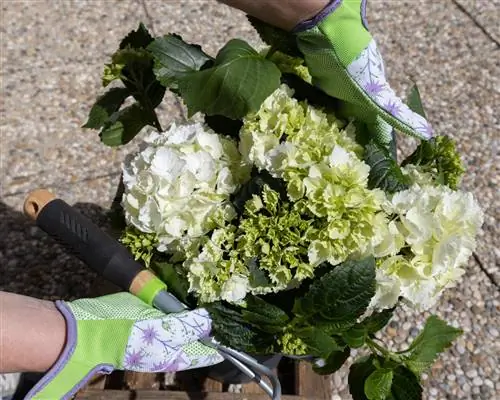- Author admin [email protected].
- Public 2023-12-16 16:46.
- Last modified 2025-01-23 11:20.
The breathtaking flowers from the rainforest definitely have their pitfalls. Orchids are one of the more than 300 plant species that can cause allergies. Read here which symptoms you can use to recognize the disease.
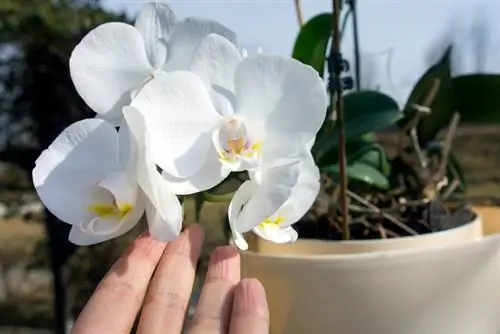
How does an orchid allergy manifest itself and is the scent dangerous?
Orchid allergies arise from direct contact with plant sap and manifest themselves as skin itching, burning, pustules, redness and swelling. However, fragrant orchid flowers can be enjoyed without worry as the plant does not cause pollen allergies.
Contact threatens dermatitis
The orchid doesn't immediately come to mind when we're looking for allergy triggers. Nevertheless, the multifaceted genus is one of the usual suspects on the list, alongside primroses, tulips and chrysanthemums. The focus is on the plant sap, which can cause these common symptoms when it comes into direct contact with the skin:
- The skin itches and burns in the affected areas
- As it progresses, pustules, redness and swelling form
- The skin is wet or flaky
Experience has shown that the first symptoms do not appear immediately, but only become apparent after 48 to 72 hours. This circumstance makes root cause analysis difficult. If a withered flower is cleaned out or a dead leaf is cut off in passing, the busy hobby gardener is no longer aware of this routine action the next day.
Sniffing flowers is harmless
Good to know that you can enjoy the intoxicating scent of your most beautiful orchids without any worries. The tropical flower is only associated with the triggers for contact allergies. If you suffer from symptoms of a pollen allergy, other plant species may be the cause, such as azaleas, daisies or chrysanthemums. Their pollen causes a runny nose, sneezing and even breathing difficulties.
Prevention tips
Home gardeners with other allergies can avoid unpleasant skin irritations if they wear protective gloves (€14.00 at Amazon) when carrying out all work related to the care of their orchids. This is especially true if you cut dead leaves, shoots or bulbs. Even if only a single, withered aerial root needs to be removed, you should not do without gloves.
Tip
Are the torturous symptoms of an orchid allergy not going away even though you have banned all plants from the house? Then please carefully examine all cosmetics in your household. The ongoing eco and wellness boom has led to numerous creams, lotions and shampoos containing extracts from orchids and other plants. Although promoted as harmless, these ingredients have the potential to cause allergies.

